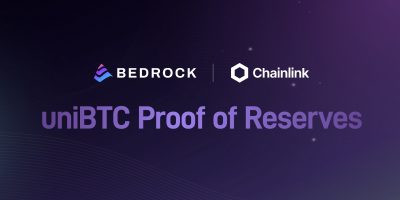Bedrock, a multi-asset liquid staking protocol, adopts Chainlink Proof of Reserve (PoR) to improve the security of its coin feature after the protocol was hit by a security breach that led to a loss of $2 million in assets today , the team said in a recent statement.
The team said this move would help strengthen the Bedrock protocol against future exploits. Chainlink’s PoR, which is relied on by leading asset manager 21Shares, will provide automated and verifiable onchain controls to ensure proper reserve coverage, prevent malicious minting and protect against manipulation, Bedrock said.
“Integrating Chainlink Proof of Reserve is a critical step in strengthening our protocol and helping ensure the utmost protection of user funds,” said Zhuling, a core contributor at Bedrock, adding that the integration plays an important role in ensuring the security and transparency of Bedrock’s coin function.
Chainlink’s platform, which has facilitated more than $15 trillion in transactions, will also provide multiple layers of decentralization and increased transparency for Bedrock’s operations, Bedrock added.
“Proof of Reserve will secure the coin function for uniBTC and take a crucial step in safeguarding this asset, while providing users with full transparency around reserves,” said Johann Eid, Chief Business Officer at Chainlink Labs.
“With the explosion of tokenized assets in our space, Chainlink’s real-time, automated verifications help prevent security exploits associated with excessive misuse, building trust and protecting against vulnerabilities,” he noted.
Bedrock, launched by RockX in February 2023, is the eighth largest liquid staking protocol with $229 million in TVL as of September 27, DefiLlama data shows.
The security exploit involving Bedrock’s uniBTC was reported earlier today. Following the incident, the Protocol assured users that the remaining funds were safe, was finalizing a repayment plan and would soon release a detailed post-mortem report.

